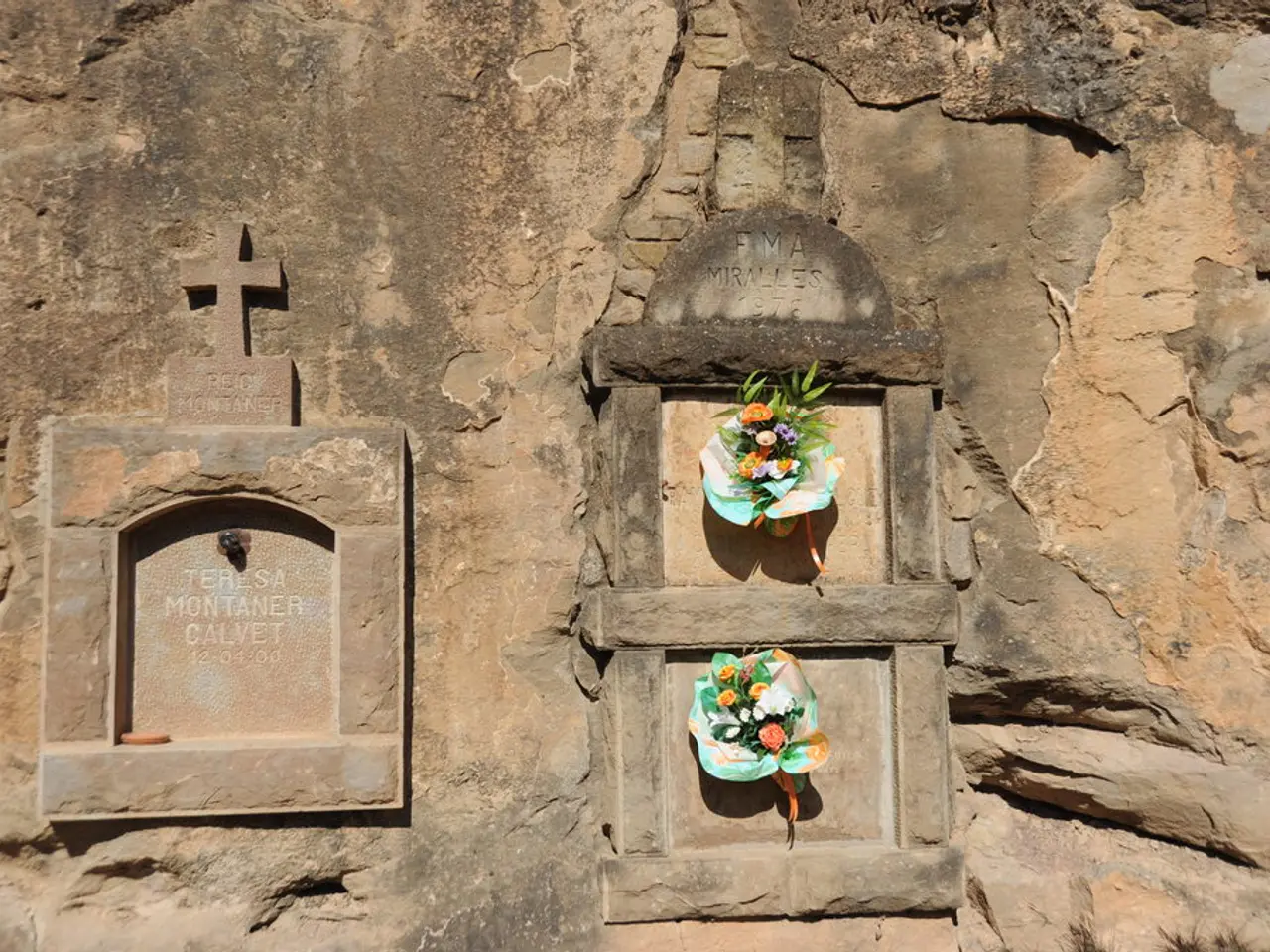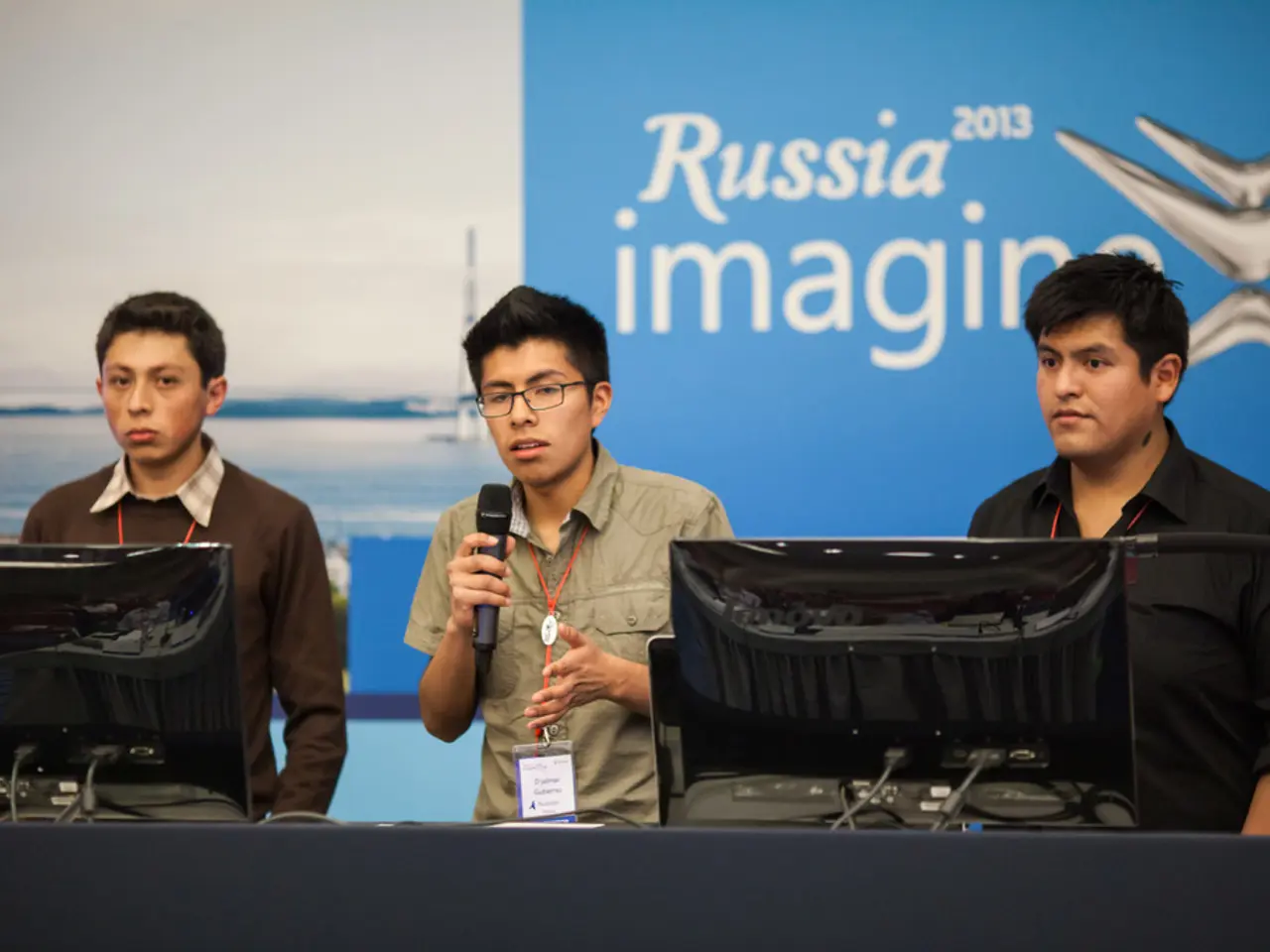Düsseldorf honors the killings of Sinti and Roma during the Nazi period
In Düsseldorf and across North Rhine-Westphalia, the annual commemoration of Holocaust Remembrance Day for Sinti and Roma took place on August 2, 2025. This day, marked since 2015 by the European Parliament, serves as a solemn reminder of the persecution and genocide of Roma and Sinti people during the Nazi era.
The commemorative event in Düsseldorf took place at the foot of the Ehra monument in the city's old town. People who came to honour the murdered Sinti and Roma laid a white rose at the Ehra memorial, a poignant tribute to the victims. The bronze figure at the Ehra monument, created by sculptor Otto Pankok in memory of his friendly Düsselorf Sinti, many of whom were murdered, stands as a powerful symbol of remembrance.
The event in Düsseldorf was organised by the city, the Sinti and Roma Landesverband NRW, the International Cultural and Sports Club "Roma Carmen" e.V., and the reporters on site. The day included a musical ceremony, a wreath-laying ceremony, and speeches, providing a platform for remembrance and education.
Elsewhere in North Rhine-Westphalia, similar events took place. In Oberhausen, the commemorative event was held in the memorial hall, remembering the mass murder of Sinti and Roma in the Third Reich. The Roma Integration Center RIZ and the Landesnetzwerk "Stimme der Vielfalt" organised the event, which included speeches and a poetic youth performance.
In Cologne, the association Rom organised a remembrance cultural city walk under the title "SpuRom:nja", making the stories of Sinti and Roma visible. Many Roma in Cologne came from former Yugoslavia, adding a poignant international dimension to the commemorations.
The European Parliament has declared August 2nd as Holocaust Remembrance Day for Sinti and Roma, marking significant progress in official acknowledgment of this long-overlooked genocide. In Germany, the National Holocaust Memorial Day for Sinti and Roma on this date focuses on remembrance and anti-racism efforts, with events across cities including sites like Auschwitz-Birkenau where atrocities occurred.
Ongoing issues for Roma and Sinti include social exclusion, hate speech, and political scapegoating in parts of Europe, including Germany. Institutions such as the OSCE’s Office for Democratic Institutions and Human Rights emphasise that commemoration must be coupled with active measures to fight current racism and enhance Roma participation in society. This ongoing discrimination underscores the importance of remembrance days as both memorial and catalyst for social change.
On August 2, 1944, 81 years ago, 4,300 Sinti and Roma were killed in the Auschwitz-Birkenau concentration camp. Over 500,000 Sinti and Roma were victims of the Holocaust in Nazi-occupied Europe. As we remember these tragic events, it is crucial that we continue to honour the victims, address the persistent discrimination and marginalization Roma and Sinti communities face today, and work towards a society where everyone is valued and treated equally.
A report on this year's commemorations will be aired on the website television at 18:45 in the Current Hour on August 2, 2025.
News about the annual Holocaust Remembrance Day for Sinti and Roma across North Rhine-Westphalia, Germany, was covered in the general-news on August 2, 2025. The events included musical ceremonies, wreath-laying ceremonies, speeches, and poetic youth performances, providing a platform for remembrance and education. The ongoing discrimination faced by Roma and Sinti communities was highlighted as a significant issue, emphasizing the importance of these commemorations as both memorial and catalyst for social change.








